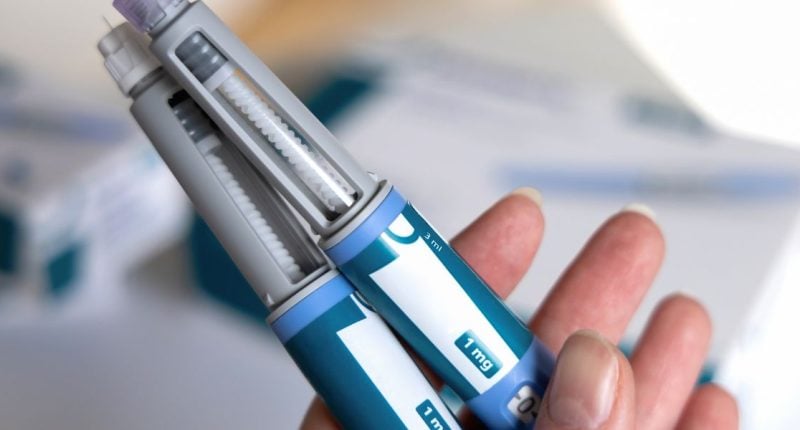- The growing trend of celebrities using GLP-1 medications like Ozempic for weight loss has sparked controversy.
- Eli Lilly, the maker of Ozempic, took a prominent role at the 2025 Golden Globes, sponsoring the event.
- While these medications can benefit individuals with medical needs, there are concerns about marketing that blurs the line between health treatment and vanity.
The 2025 Golden Globe Awards, held on January 6, wasted no time reigniting the ongoing debate surrounding GLP-1 medications, with the conversation resurfacing within the first 8 seconds of the broadcast.
Ozempic, Wegovy and Mounjaro featured prominently.
Known for their use in managing type 2 diabetes and aiding weight loss for those struggling with obesity, the medications found themselves at the centre of discussions about off-label use for cosmetic weight reduction.
At the start of the awards ceremony, host Nikki Glaser couldn’t resist referencing the hot topic of the moment, saying, “Good evening, and welcome to the 82nd Golden Globes – Ozempic’s biggest night.”
Her remarks highlighted the widespread speculation that many celebrities are turning to GLP-1 drugs to shed pounds for appearances or upcoming roles – despite these medications not being licensed for such use.
- Psyllium husk: Fibre supplement as effective as Ozempic for weight loss, doctors say
- Khloe Kardashian denies using diabetes drug for weight loss after TikTok posts sparked shortages
- Popular fasting diet more beneficial for treating type 2 diabetes than drugs, researchers say
At this year’s Golden Globes, Lilly took a prominent position as an event sponsor to reinforce its message to a wide audience.
Near the end of the broadcast, a brief voiceover announced, “CBS’ telecast of the 82nd Golden Globe Awards is sponsored by Lilly, a medicine company,” accompanied by the company’s logo.
Between moments of glitzy red carpet glamour, viewers also saw advertisements for Lilly’s products, along with weight management solutions from other brands like Novo Nordisk.
This continued focus on weight-loss drugs at such high-profile events is a trend that began gaining momentum last year.
At the 2024 Academy Awards, Oscars host Jimmy Kimmel made a similar comment, saying, “Everybody looks so great. When I look around this room, I can’t help but wonder, ‘Is Ozempic right for me?’”
His lighthearted jab further underscored the growing popularity of these treatments in celebrity circles, sparking both intrigue and concern.
The spotlight on GLP-1 medications at the Golden Globes reflects their expanding cultural presence and their increasing influence on popular health trends.
But the ongoing debate surrounding their off-label use for weight loss and cosmetic purposes remains a controversial issue.
- Mounjaro comes out top in battle of the weight loss drugs
- Natural weight loss drug as effective as Ozempic and without side effects, academics claim
- 150 minutes of aerobic exercise key for significant weight loss
Heavy marketing and widespread use of these drugs in the entertainment industry may not necessarily be a positive development.
While promoting medications like Ozempic for their ability to assist with weight loss may be appealing to those struggling with obesity or diabetes, the increasing association of these drugs with celebrities’ desire to achieve a certain body image could create unrealistic expectations for the general public.
Is it responsible to market such products in a way that prioritises vanity over their intended medical purpose? The line between legitimate medical use and cosmetic enhancement is becoming increasingly blurred, and there are concerns about the potential for further misuse.
Moreover, there’s a risk that celebrities and influencers, often held in high regard, could be seen as endorsing the use of GLP-1 medications as quick-fix solutions to body image issues, promoting them as a shortcut to beauty ideals.
Some experts feel this could exacerbate the pressure many people already feel to meet unrealistic beauty standards.
Ultimately, while these drugs can provide significant health benefits for those with specific medical needs, the growing trend of using them for cosmetic reasons raises important ethical and social questions.







